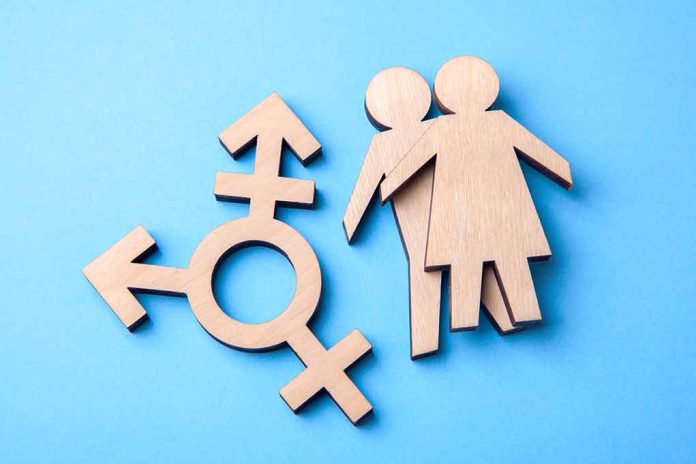
Donald Trump’s executive order seeks to redefine women’s sports by enforcing sex-based eligibility, stirring significant legal and societal debate.
Key Takeaways
- Trump signed an order banning trans women from women’s sports.
- Non-compliant educational programs might lose federal funding.
- The order’s compatibility with Title IX is questionable.
- Federal departments will enforce biologically-based sports categories.
- The initiative aligns with a broader political agenda on sex-based rights.
A New Executive Order Unveiled
Donald Trump has signed the “Keeping Men Out of Women’s Sports” executive order, which dictates that trans women athletes are prohibited from competing in female sports categories. This mandate aligns with Trump’s previous policies aimed at emphasizing biological sex parameters over gender identity in sports and education. The legislation coincides with National Girls and Women in Sports Day, indicating a strategic timing to underscore its significance. The ramifications of this order could extend beyond sports, influencing federal funding and institutional policies that involve transgender athletes.
The order directly tasks the Department of Education to withhold funding from institutions that violate this policy by including trans women in female sports categories. This directive challenges schools and sporting bodies to adhere strictly to the new federal guidelines or face potential economic repercussions. The administration insists that these measures are necessary to preserve fairness, safety, and propriety in women’s sports and locker rooms.
Federal Involvement and International Outreach
Trump has also instructed government officials, including the U.S. Secretary of State Marco Rubio, to engage with international sports organizations like the International Olympic Committee to adopt similar policies based on biological sex. Rubio’s involvement highlights the administration’s commitment to ensuring that these principles extend beyond American borders. By advocating for changes on a global scale, the executive order is pushing for a broader reformation of eligibility standards that exclude gender identity or testosterone levels as qualifying factors.
The policy also involves the Department of Justice and the Department of Homeland Security, ensuring comprehensive enforcement and compliance. The mandate encourages state attorneys general to identify and enforce effective practices that uphold the integrity of women’s sports across various educational platforms and athletic associations.
📢 New day dawning for inclusive and equitable Olympic sport 📢👇👇👇 Now let's get working on the rollout! https://t.co/gYejtOTABF
— Madeleine Pape (@Madeleine_Pape) November 16, 2021
Future Challenges and Societal Impact
The executive order, though comprehensive, is not immune to challenges. Legal experts and advocacy groups, like the Human Rights Campaign, have criticized it for potentially promoting discrimination and harassment against transgender youth. Questions remain about whether the order oversteps legal boundaries, particularly in relation to Title IX requirements barring sex discrimination in federally funded education.
“From now on women’s sports will be only for women. We’ve gotten the woke lunacy out of our military and now we’re getting it out of women’s sports,” said Trump.
The order is likely to face legal scrutiny as its opponents argue that it infringes upon the civil rights of transgender students. The Trump administration asserts that ignoring these policies endangers and silences women and girls, yet the debate over fairness and inclusion is far from settled. This directive marks a pivotal moment as America navigates the intersection of sports, education, and civil rights, with implications that could ripple across both domestic and international domains.


